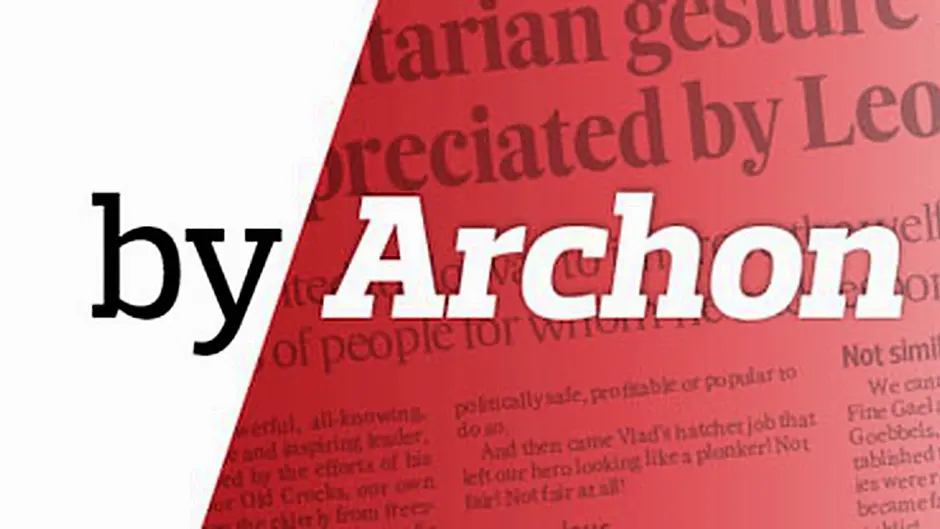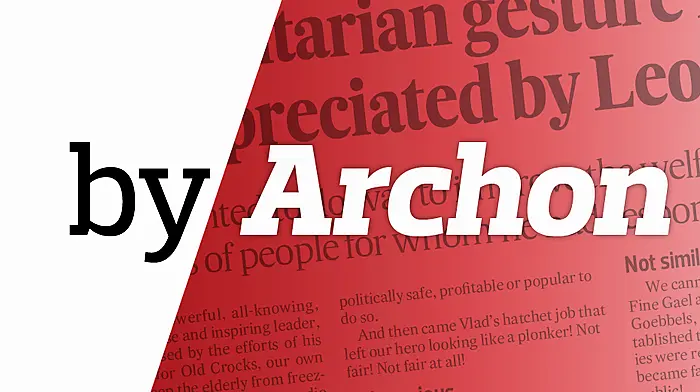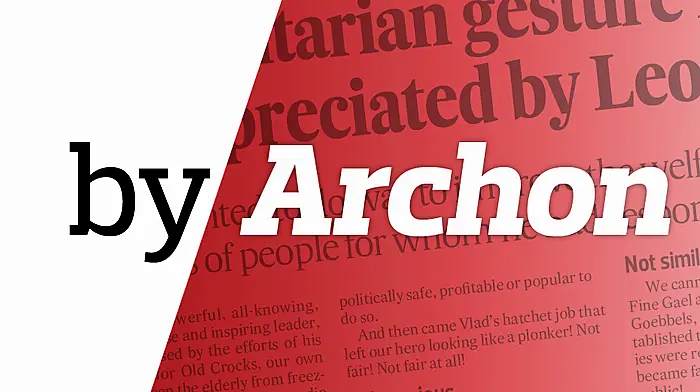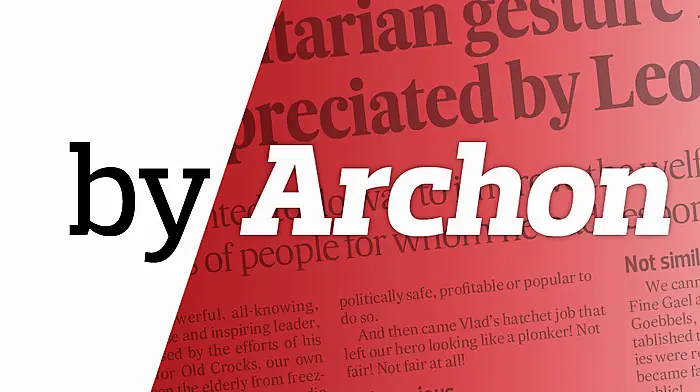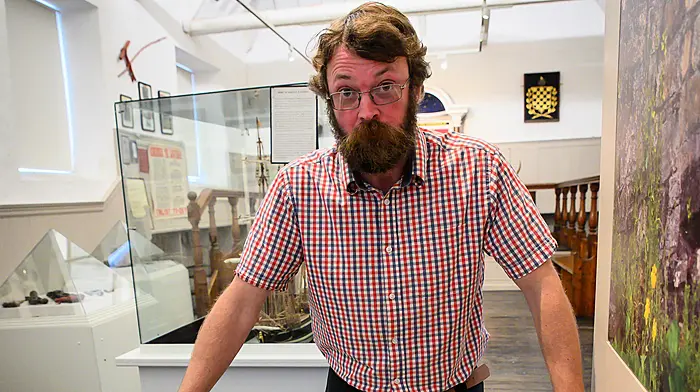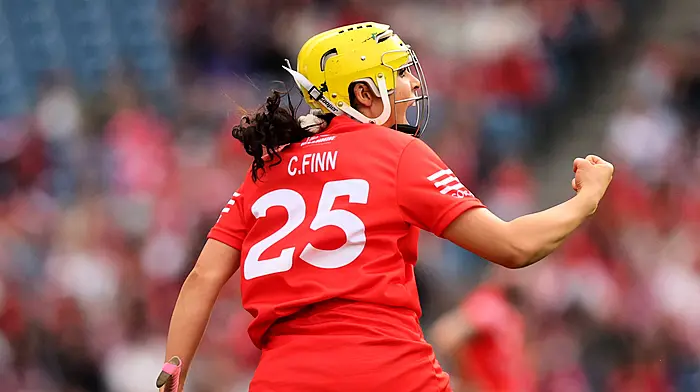Much of Northern nationalism believes that some sort of a poll on a united Ireland is in the pipeline
ACCORDING to a new opinion poll, the rise of Sinn Féin is unstoppable. The party is now at 32% and enjoying the status of being the most popular political outfit in Ireland!
On the other hand, Fine Gael has dropped three points, to 27%, while Fianna Fáil limps along at 22%, up a ‘remarkable’ three points (please note the irony); but, under the uninspiring leadership of Our Mickey, still a far cry from the achievements of Dev’s Soldiers of Destiny.
Or, to put matters another way, as an explanation for Fianna Fáil’s stagnation, the ex-pedagogue, Mickey, philosophically might have commented to his pupils after another botched election: ‘Sic transit gloria mundi’ (And no, the schoolboy translation is not ‘Gloria got sick in the bus on Monday!’)
As for the Labour Party, well, it’s at 5%, not too far off from extinction. Sadly, long gone are the days of plush carpets, pin-striped suits, multi-million valued headquarters, limos, exotic trips and the myth it cultivated that the party was OXO (or spot-on) in doing something for the Great Unwashed.
As for the Greenies, well, to avoid making matters too unbearable for our readers, we will avert our eyes from the sight of they being dumped into what The Sunday Times cruelly called the ‘Dust Bin Zone’!
Neck and neck with them are the People Before Profit who, despite a 2% popularity rating, contributed verbally to that most entertaining of Greenie debates: the planned Cork-Limerick motorway and whether an environmentally-friendly throughfare would be a better option for cyclists of the ‘high-nelly’ sort.
Up North
The serious politics is Up North with the emergence of what’s being called ‘civic nationalism’ or the ‘unity project’ which has led to some discussion within Sinn Féin in regard to a border poll on unification.
Even Peter Robinson, former Democratic Unionist Party (DUP) leader, seems to accept that a border poll is more likely now than it has ever been. He thinks such a poll would reinforce the Unionist cause.
For instance, last month The Irish Times reported him saying that ‘success for Unionists in a border poll would be down to a steady and consistent espousal of the real value of United Kingdom membership, not a three-week splash.’
What’s more, he proposed the formation of a unionist think-tank that would do ‘the spadework for a campaign to promote the union.’ Nationalists smilingly congratulated him for his ingenuity.
Because Sinn Féin, and much of Northern nationalism, believes some sort of poll on ‘unification’ is in the pipeline and, indeed, it is now rare for Northern Sinn Féin not to make the case for unity as often as possible, and from every point of view.
Mixed messages
In fact, according to a recent LucidTalk poll on Northern attitudes to unification, the results of any kind of referendum would rest on a knife-edge. The percentage of people ready to vote for a united Ireland was almost as high as the percentage determined to vote for the North to remain part of the United Kingdom.
Those in favour of a united Ireland amounted to 45.4% while 46.8% wished to stay in the UK. Just 7.8% said they were unsure how they would vote in a border poll.
LucidTalk ran the same poll in the Republic and discovered that 73.1% of respondents wanted the North to be part of a united Ireland, 10.2% voted to remain in the UK and 16.7% didn’t know.
In both polls, North and South, a majority of participants declared their support for a referendum on Irish unity taking place within the next five years. According to LucidTalk, the results ‘shook the foundations of the existing constitutional order’ in the North.
The island of Ireland, they said, is heading for major referendums within five or ten years and there will be no excuse for avoiding ‘the work involved in managing the potential for constitutional change that will arise.’
The company also made the point that more people on both sides of the border opted for a federal arrangement rather than a central government in the North.
Interesting too that a quarter of the Northern respondents were not in favour of a united Ireland ‘under any circumstances.’
Gobbledegook?
Meanwhile, down south, Mickey and crew were ‘setting out’ their plans as to how their government would ‘pursue the goal of building consensus around a shared future.’ The ‘goal’ would be structured on what he calls his ‘Shared Island Dialogue’ whose intention would be to ‘foster positive engagement on all aspects of our shared future.’
Wow! That sounds brill! Oh yes!
But, sadly, unionists see his ‘Shared Island Dialogue’ as nothing more than traditional Fianna Fáil gobbledegook and, if it made any sense at all, the intention was to ‘absorb’ Northern Ireland from the UK and into a 32-county republic. And that wasn’t on! Oh no!
‘Our people’
And now for something different: Last weekend, thirty people with coronavirus died in the North and, as there were no restrictions to limit travelling between the North and Britain, public health workers braced themselves for the arrival of a new strain of the virus.
The North’s health chiefs reported 30 more deaths to add to the earlier grisly record of 1,196 . Hospitals couldn’t cope, leading to people being treated in ambulances.
The DUP rightly deserved criticism for its incompetence and for the failure of party leader, Arlene Foster, to align the North’s Covid-19 policies with hospitals in Dublin.
She defended her decision not to seek assistance from the capital. Icily, she commented: ‘We are two different jurisdictions (North and South). We communicate with each other, but ultimately we have to take decisions at the right time for our people.’
‘Our people,’ mind you!
Dev’s compassion
What a pity nobody reminded the lady that, on four occasions during the Second World War, the Luftwaffe bombed Belfast (between April and May 1941) and, on those four occasions, fire-fighters from Dundalk, Drogheda, Dublin and Dún Laoghaire hurried to the North and risked their lives in assisting their Belfast colleagues.
In response to the aid provided by volunteer fire-fighters from the ‘South,’ Taoiseach Éamon de Valera made his famous ‘They are our people’ speech, still remembered for its common sense.
This is what he said: ‘In the past, and probably in the present, too, a number of Northerners did not see eye to eye with us politically, but they are our people – we are one and the same people – and their sorrows in the present instance are also our sorrows; and I want to say to them that any help we can give to them in the present time we will give to them whole-heartedly, believing that were the circumstances reversed they would also give us their help whole-heartedly.’
In today’s Ireland, one wonders!

